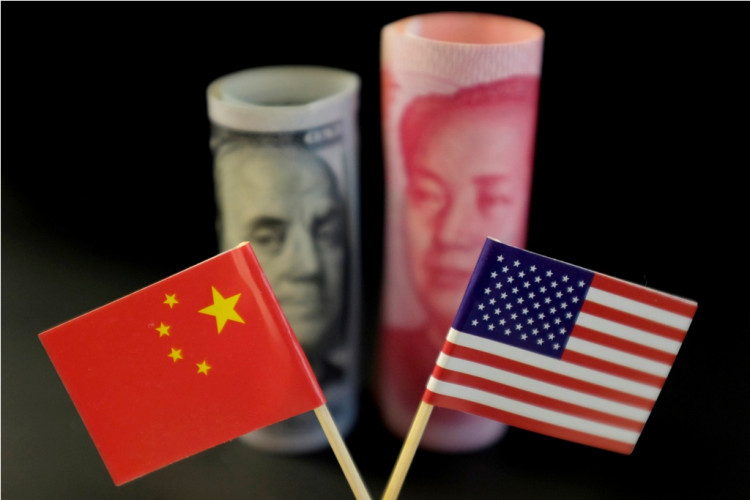Former President Donald Trump has unveiled a controversial new trade policy that could have far-reaching economic consequences. During a campaign rally in Wisconsin on Saturday, the Republican presidential nominee vowed to impose a 100% tariff on goods from countries that abandon the U.S. dollar in international trade. The proposal, aimed at preserving the dollar's status as the world's reserve currency, has sparked concerns among economists who warn that such a move could backfire, leading to severe economic repercussions for both the United States and its trading partners, particularly China.
"If you leave the dollar, you're not doing business with the United States because we are going to put a 100% tariff on your goods," Trump declared to a crowd of supporters. The former president's rhetoric underscores his longstanding protectionist stance, but the implications of this latest proposal could be profound. The U.S. dollar, while still dominant, has seen its share in global forex reserves decline from over 70% in 1999, according to data from the International Monetary Fund (IMF). In response, countries such as China, India, Brazil, Russia, and South Africa have explored alternatives to dollar-based trade.
Economists have expressed skepticism about Trump's tariff proposal, suggesting it could trigger a "lose-lose" scenario for both the U.S. and China, the world's two largest economies. Hao Hong, chief economist at GROW Investment Group, voiced concerns on CNBC's "Street Signs Asia," noting that the imposition of such tariffs would likely exacerbate inflationary pressures in the United States. "If you put a 100% tariff on Chinese exports, for example, one could only imagine how high U.S. inflation is going to go," Hong said. He emphasized that while China's export sector would suffer, the burden on U.S. consumers could be equally severe, leading to higher prices for a wide range of goods.
The timing of Trump's proposal is particularly significant as it comes amid growing global interest in de-dollarization-countries seeking to reduce their reliance on the U.S. dollar in international trade. The trend has been gaining traction, especially in the wake of geopolitical tensions and economic sanctions. Trump's proposed tariff is seen as a direct response to these developments, aiming to deter countries from moving away from the dollar.
However, the economic fallout from such a policy could be considerable. According to Stephen Roach, a prominent economist and former chairman of Morgan Stanley Asia, the tariffs would "most assuredly" fuel inflation in the U.S. economy. Similarly, Andrew Tilton of Goldman Sachs warned that Trump's proposed tariffs could reduce China's GDP by 2%, further straining an already fragile global economic recovery.
The potential for a trade war reminiscent of the U.S.-China conflict during Trump's first term is palpable. In early 2024, Trump had already floated the idea of increasing tariffs on all Chinese imports by 60% or more if he were re-elected. Additionally, he proposed a blanket 10% tariff on all U.S. imports, a move that would further escalate trade tensions. These proposals align with Trump's broader strategy to assert U.S. economic dominance, but they also risk alienating key trading partners and disrupting global supply chains.
Trump's Wisconsin rally, part of a broader campaign swing that included stops in Pennsylvania, North Carolina, and New York City, highlighted the former president's focus on economic issues as he seeks to regain the White House. His protectionist trade policies, including the proposed dollar-focused tariffs, are central to his appeal to working-class voters in swing states like Wisconsin, where his message resonates with those uneasy about President Joe Biden's economic agenda.
However, Trump's path to the presidency is far from certain. A Bloomberg News/Morning Consult poll released last week showed his Democratic rival, Vice President Kamala Harris, leading by eight percentage points in Wisconsin, the largest margin among the seven battleground states surveyed. Harris, who spent Saturday preparing for a crucial debate against Trump, is expected to challenge the economic viability of Trump's proposals during their face-off.






